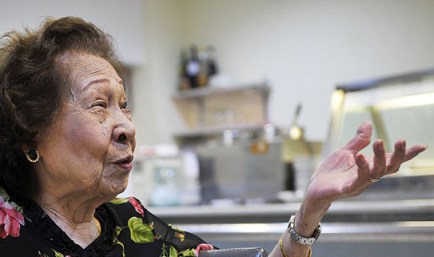Print  |
|


October 31, 2011: AFP article on last speakers of Patua, Macau
Patua is a Portuguese Cantonese Malay-based creole including traces of other languages such as Hindi and Japanese. It is also known as the “sweet language of Macau“, or “Christian speech“.
The language has been recorded as “critically endangered” by UNESCO. In fact, chances are that only a handful of speakers remain in Macau, and perhaps a few hundred overseas among the Macanese diaspora.

Dona Aida de Jesus - AFP
Facing the Chinese empire, which took over the city in 1999, and finding a place in the world’s largest gambling city, is obviously an uphill battle.
But the main reason speakers of Patua have given up their language for dates way further back, in the 19th century, when Portuguese-language schools banned the use of what was seen as a debased language. Followed a process occurring in countless areas across the world: the rejection of the language by its very own speakers, who ended up considering it worthless.
As education spread in the 19th century, Patua declined, and by the start of the 20th century it had become a women’s language. It was spoken in homes, with children and sometimes on the street, but never in schools or workplaces.
Today the language as well as the identity of Macau are increasingly diluted: only 8,000 natives still live there, while a majority left before the handover to the People’s Republic of China, and most now define themselves as Chinese.
Still, a few of remain at work in trying to have their language saved despite its vulnerability and unfavorable environment. Lawyer Miguel Senna Fernandes is one of them. Fernandes writes and directs a satirical play in Patua every year, drawing interest reaching to young budding actors who don’t necessarily speak the language, but are willing to learn. Might they make a lie out of UNESCO forecasts?








